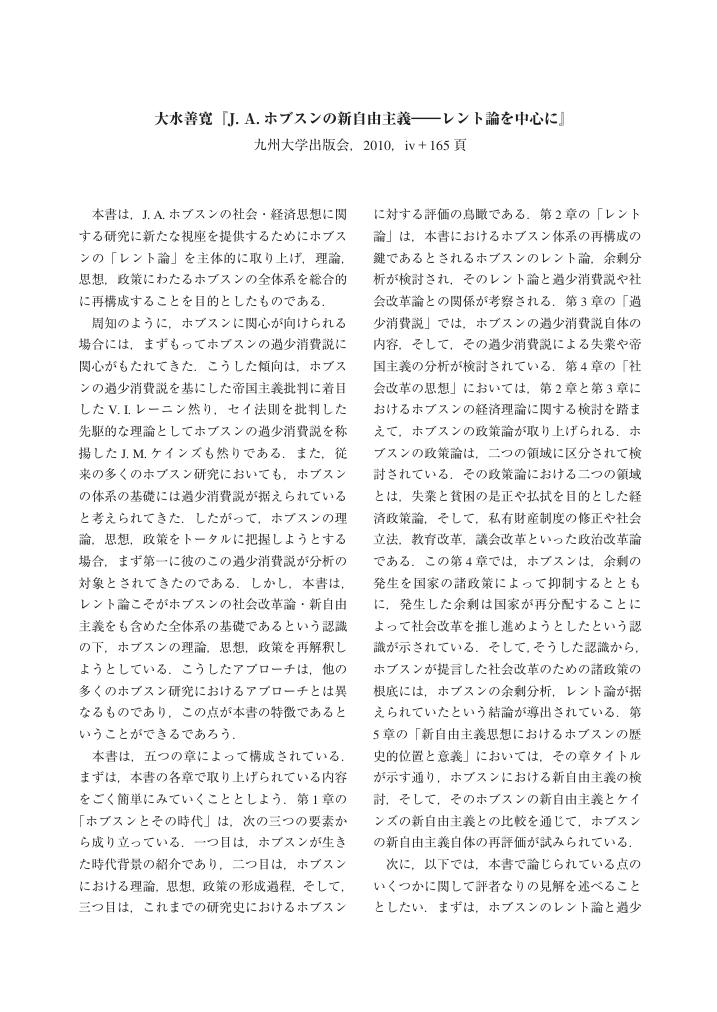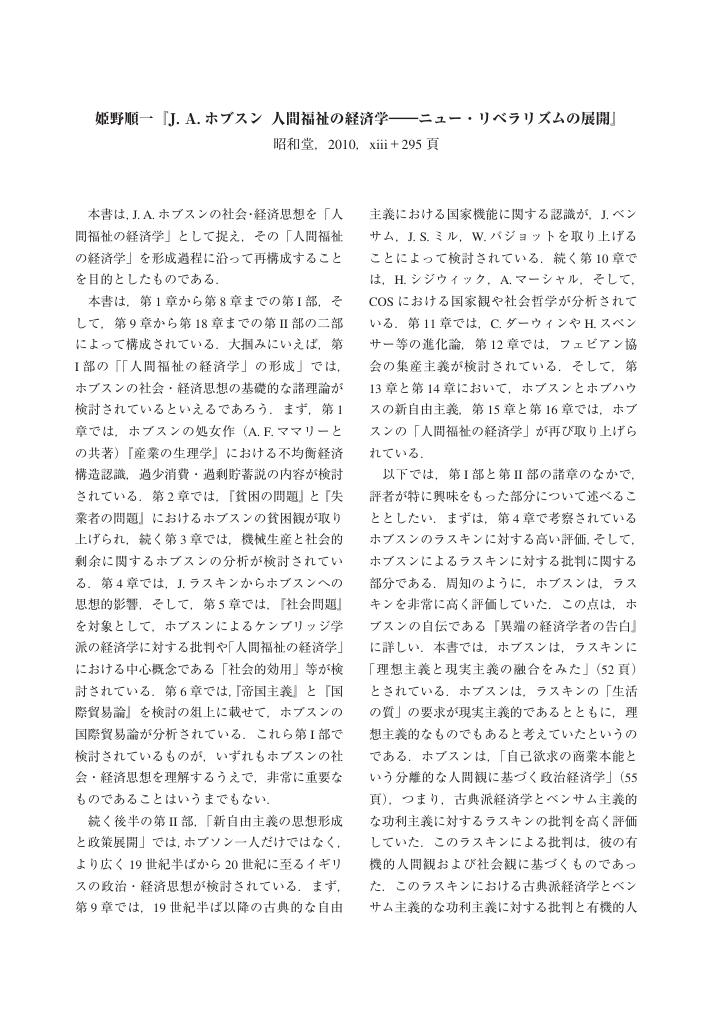- 著者
- 八田 幸二
- 出版者
- 経済学史学会
- 雑誌
- 経済学史研究 (ISSN:18803164)
- 巻号頁・発行日
- vol.53, no.1, pp.131-133, 2011 (Released:2019-10-30)
- 著者
- 八田 幸二
- 出版者
- 経済学史学会
- 雑誌
- 経済学史研究 (ISSN:18803164)
- 巻号頁・発行日
- vol.53, no.1, pp.138-140, 2011 (Released:2019-10-30)
- 著者
- 八田 幸二
- 出版者
- The Japanease Society for the History of Economic Thought
- 雑誌
- 経済学史研究 (ISSN:18803164)
- 巻号頁・発行日
- vol.48, no.1, pp.170-171, 2006-06-30 (Released:2010-08-05)
1 0 0 0 OA J. A. ホブソンの新自由主義と過少消費説
- 著者
- 八田 幸二
- 出版者
- The Japanese Society for the History of Economic Thought
- 雑誌
- 経済学史学会年報 (ISSN:04534786)
- 巻号頁・発行日
- vol.40, no.40, pp.81-92, 2001 (Released:2010-08-05)
- 参考文献数
- 37
In his Confessions of an Economic Heretic (1938), J. A. Hobson emphasized the positive meaning of equality in the stream of New Liberalism, which differed greatly from traditional liberalism. This paper explores the egalitarian character of Hobson's New Liberalism, with a focus on his theory of under-consumption.In economic writings such as The Industrial System (1909) and Science of Wealth (1911), Hobson analyzed the diverse effect of the surplus into productive surplus and unproductive surplus. Different from the traditional views which esteem productive consumption because it brings the prosperity of national wealth, he showed that the over application of the surplus into production falls into the shortage of the vent. In order to resolve this problem, Hobson proposed the egalitarian idea that the surplus should be adequately distributed to the laboring classes.This famous under-consumption theory bears a close connection with his moral and social evaluation of the way of living. As The Crisis of Liberalism (1909) as well as the early writing of John Rushin: Social Reformer (1898) shows, Hobson presented the idea that wealth and value should be elevated to sustain the welfare and vitality of human beings. His core idea here is to induce ‘self-development of human character’. According to him, sustaining the human ‘need’ is crucial for this purpose of human development. The combination of need and vitality should be provided by the adequate distribution of the surplus to laborers, instead of the unjust holding of the surplus by the upper ranks. Although he proposed a kind of switching of distribution from the upper class to the laborers, Hobson's ideas differed from ordinary socialist ideas, because his main concern was in a sort of Ruskinian humanism.In recent monographs on the British new-liberalism, there is conflict about how to evaluate the connection between Hobson and Keynes. However, it is indispensable here to analyze their argument under the combination of the moral, the social argument, and of economic reasoning.


